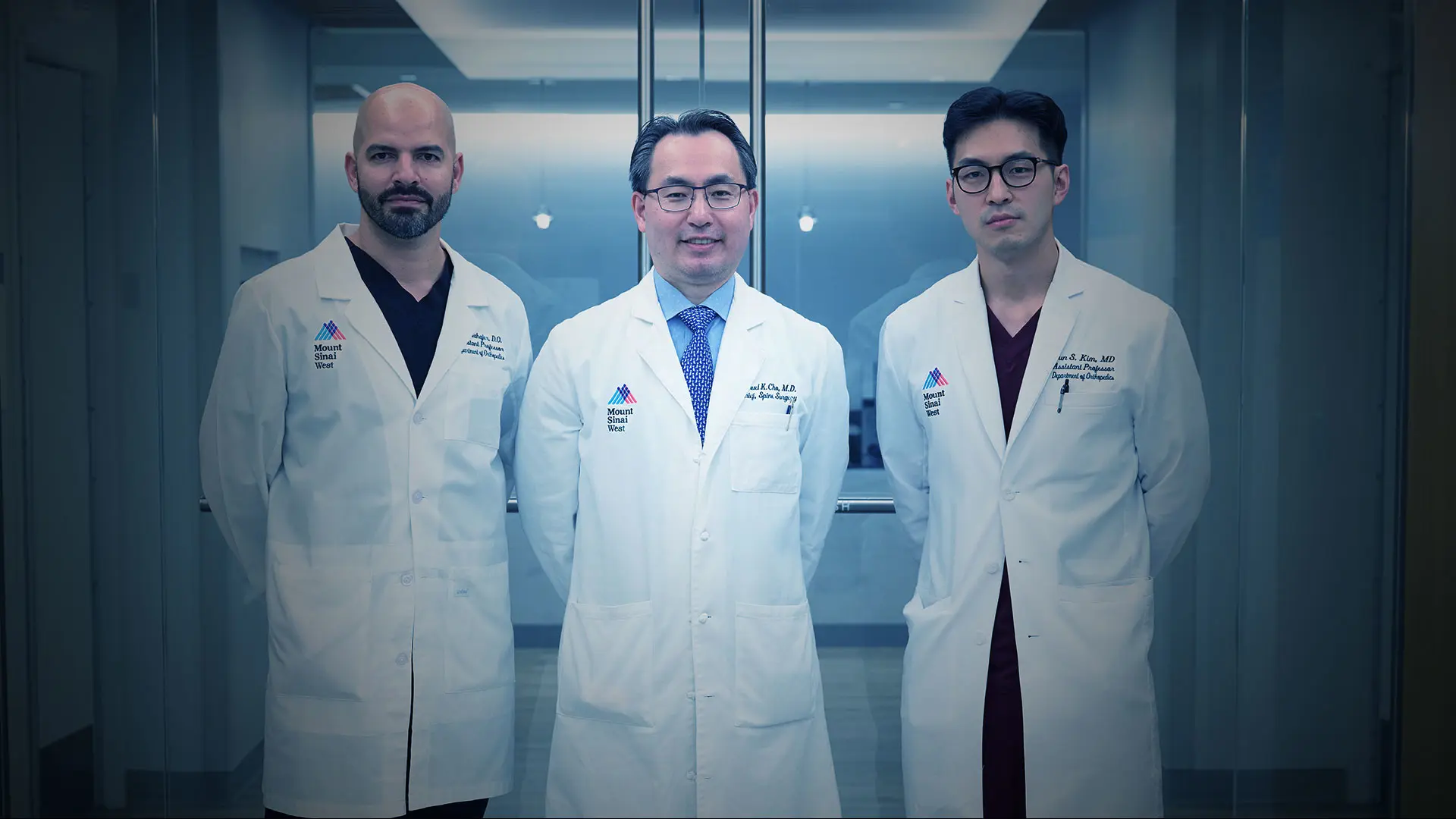Patients visiting the new Spine Center at Mount Sinai West in Manhattan will find that the benefits and convenience of having comprehensive spinal care close to home do not end with this state-of-the-art medical suite. Those who eventually require more advanced interventional spinal therapy will have access to a new ambulatory surgery center at the same site—representing an extremely rare coupling of medical services in the field of orthopedics.
“The strength of the Spine Center will be its ability to draw on this vast multidisciplinary network of surgical and nonsurgical expertise,” says Jun S. Kim, MD, Assistant Professor of Orthopedics at the Icahn School of Medicine at Mount Sinai, and a spinal surgeon at the new site specializing in complex reconstruction of spinal deformities. “Being able to offer patient assessment with full-body musculoskeletal imaging on one floor, and surgery, if it’s needed, just one floor below, is a huge advantage for patients, especially those with mobility problems.”
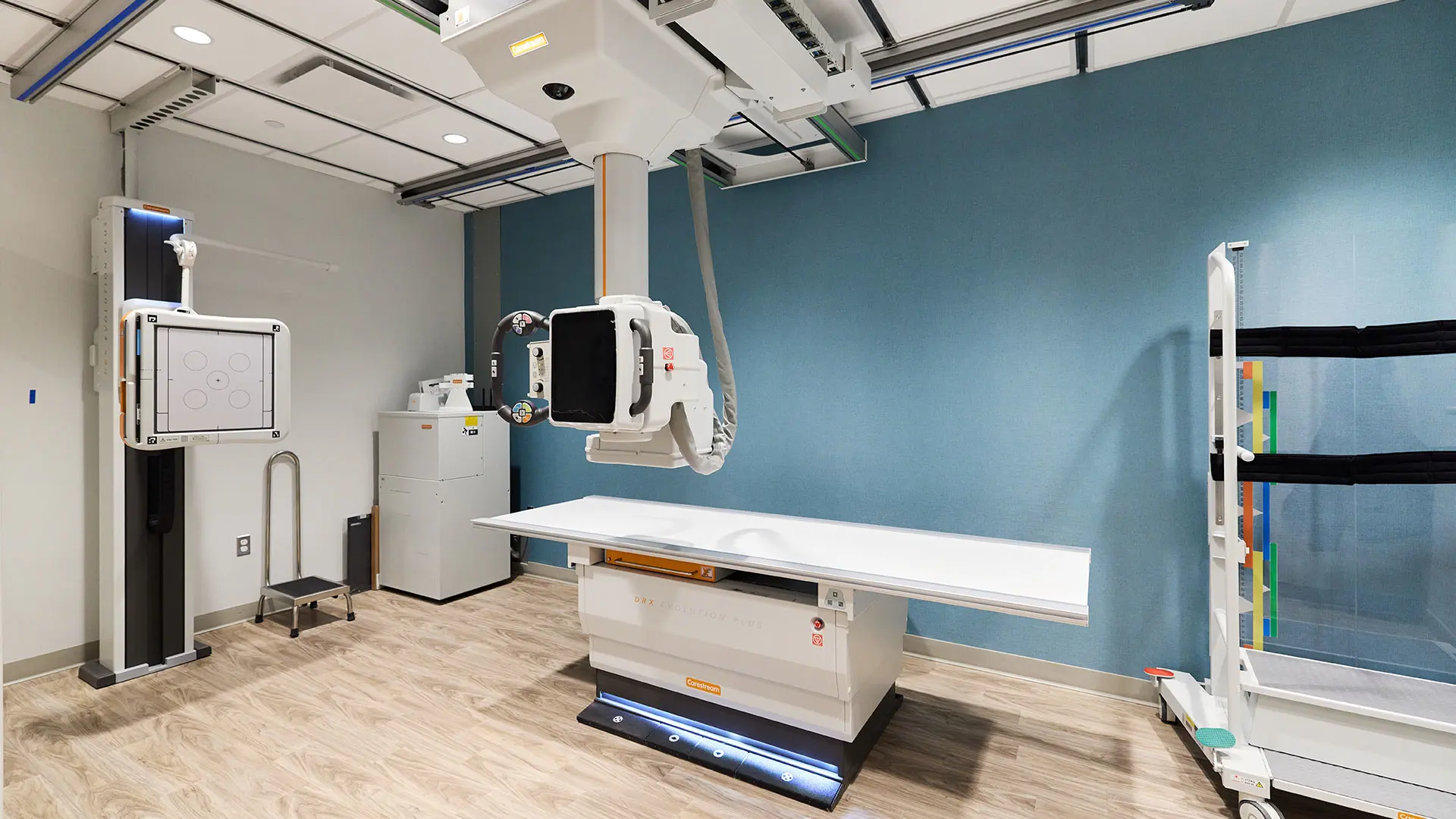
The Spine Center's modern radiographic equipment allows specialists to quickly perform X-rays during patient visits.
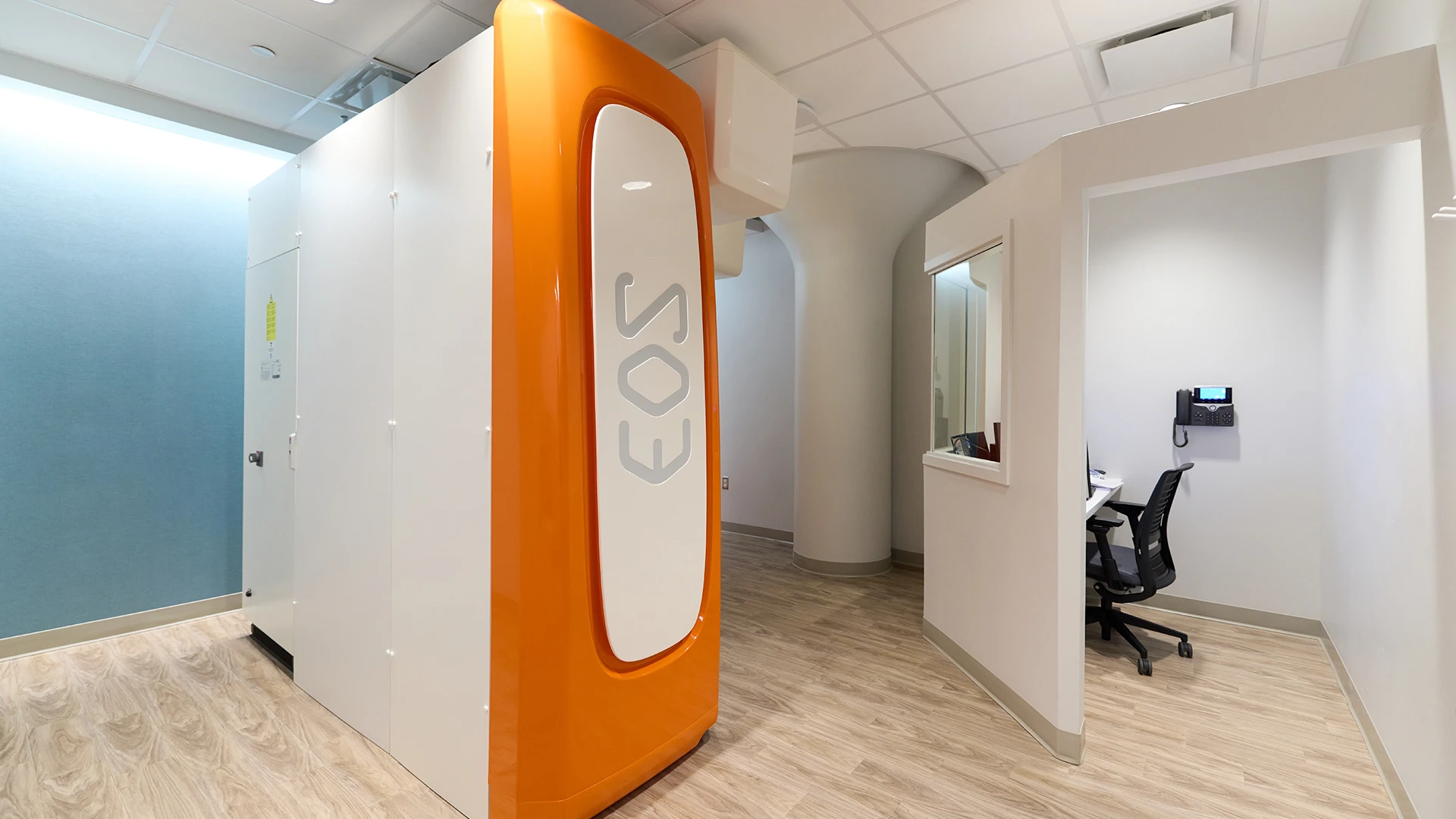
A state-of-the-art EOS imaging system in the Spine Center provides full-length images that use a fraction of the radiation of traditional X-rays. It is also capable of performing three-dimensional reconstructions from these images, which allow specialists to evaluate scoliosis and alignment.
A Diverse Range of Experts in One Location
The new Spine Center, which opened in the fall, lies in the shadow of Mount Sinai West, a full-service medical center in a section of the city devoid of other hospitals. On the surgical side, it will be staffed by neurosurgeons as well as orthopedic spine surgeons. On the nonsurgical side, it will be staffed by physiatrists who work closely with physical therapists, pain management specialists, rheumatologists, acupuncturists, and chiropractors to design therapies around the specific needs of patients.
“That’s the beauty about being part of a tertiary care center like Mount Sinai,” observes Samuel K. Cho, MD, Chief of Spine Surgery at Mount Sinai West, and Professor of Orthopedics, and Neurosurgery at Icahn Mount Sinai, who works alongside Dr. Kim and specializes in minimally invasive surgical procedures. “Every specialist brings a different set of eyes and expertise to the table, and that’s particularly important given the fact that not all back and leg pain emanates from the spine, and not all arm and neck pain stems from the cervical region.”
To be sure, Mount Sinai West’s spinal team members are committed to exploring all nonsurgical avenues of care before proceeding with an invasive approach. “Many spinal conditions improve on their own with conservative management,” emphasizes Dr. Kim, “which is why I might send patients I examine to a physical therapist or a neurologist to provide a complete picture of their pathology and the best course of treatment. That’s a great service we’re able to provide to our patients.”
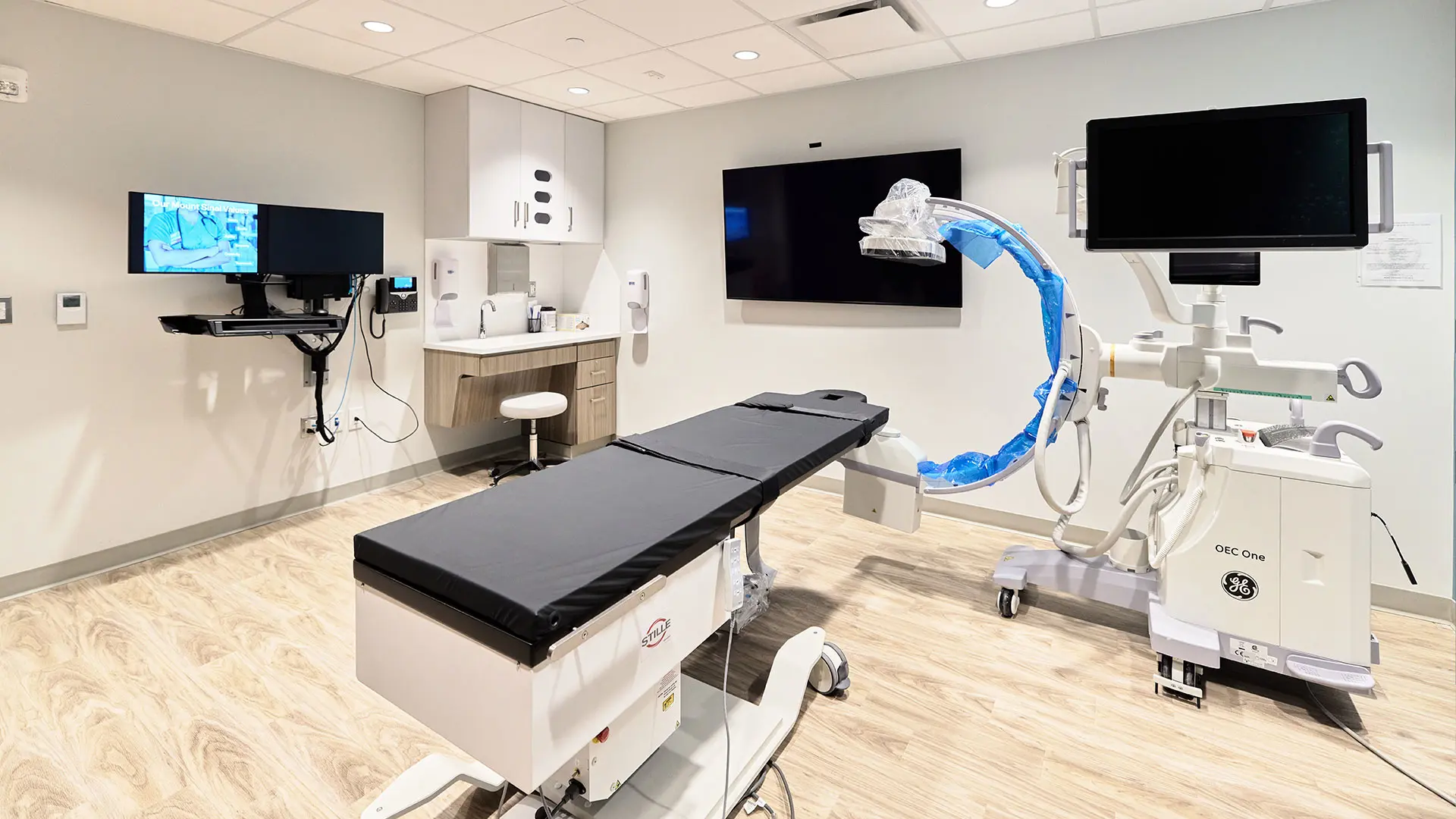
An on-site fluoroscopic procedure room in the Spine Center allows physiatrists and pain management physicians to perform various pain procedures, such as epidural and facet injections.
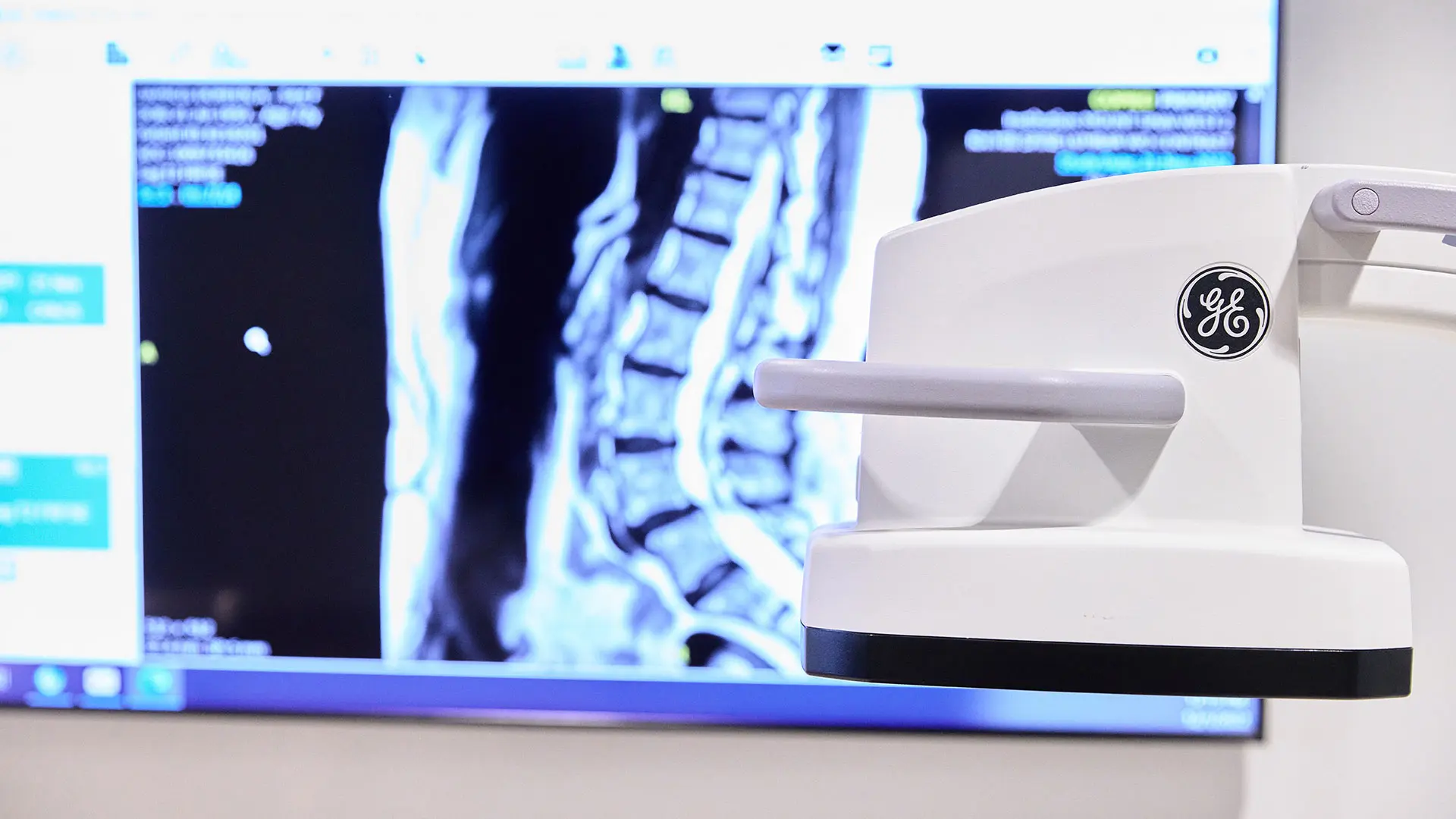
Close-up of an X-ray in the fluoroscopic procedure room.
Enhancing Surgical Procedures With Artificial Intelligence
Another way patients benefit is from the advanced research conducted by Drs. Kim and Cho within Icahn Mount Sinai. Dr. Kim is among the first orthopedic surgeons in the nation to apply artificial intelligence and machine learning to analyzing and improving surgical procedures. A recent study he led, for example, developed and validated a machine-learning algorithm with the ability to detect, with 95 percent accuracy, anterior cervical discectomy and fusion plates from prior procedures before proceeding to revise or redo those implants. In that study, 275 smartphone images were used to train a convolution neural network for classification of images from radiographs.
“It’s often difficult to tell from X-rays alone what implants may be embedded, but if you had an algorithm to perform that identification, you could save time during surgery by being much more efficient in your presurgical planning,” explains Dr. Kim, who is head of the Department of Orthopedics’ Artificial Intelligence and Machine Learning laboratory. “Based on our research, we hope to deploy an easily accessible smartphone application that should be of great interest to orthopedic surgeons.”
Featured
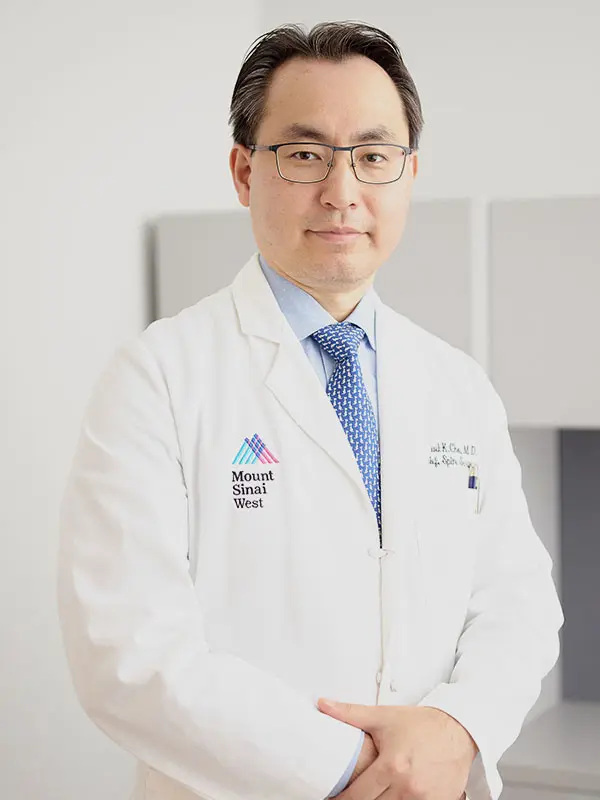
Samuel K. Cho, MD
Professor of Orthopedic Surgery and Neurosurgery
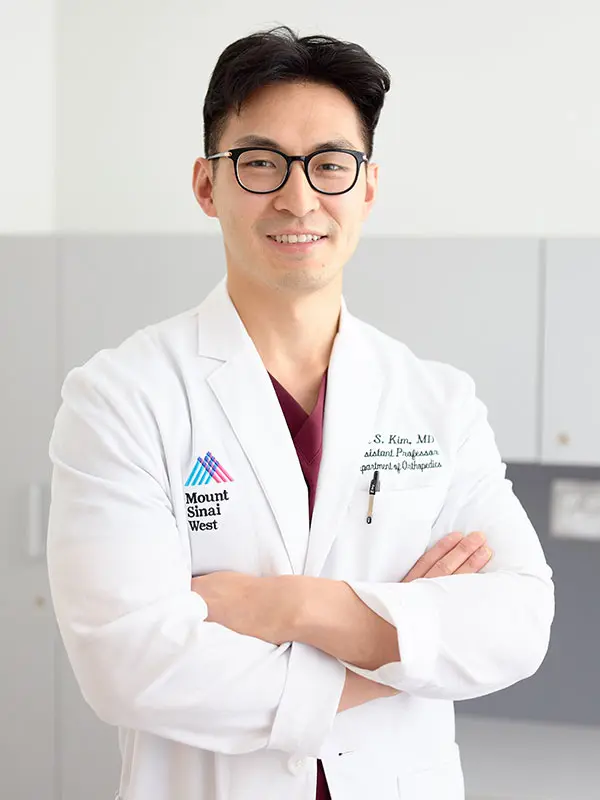
Jun S. Kim, MD
Assistant Professor of Orthopedics
